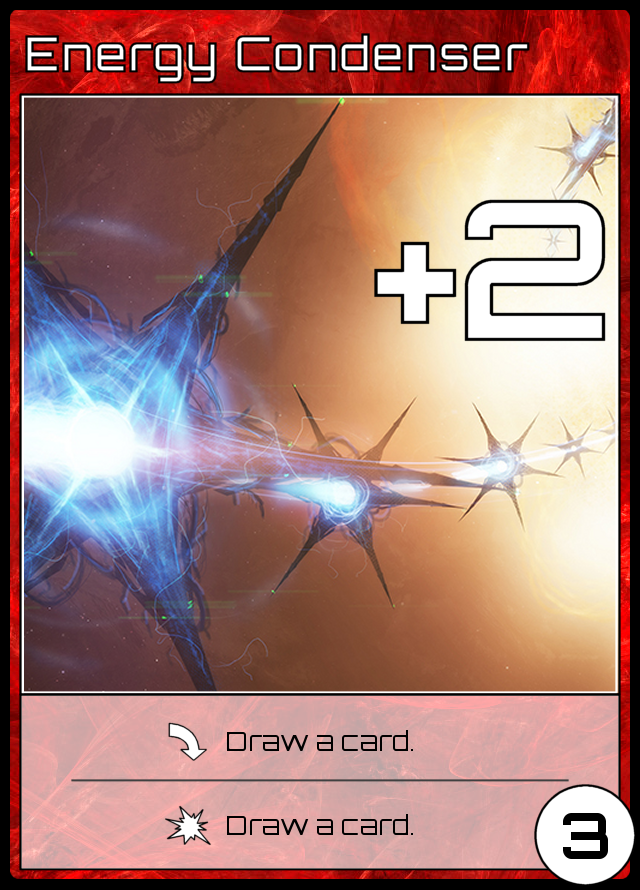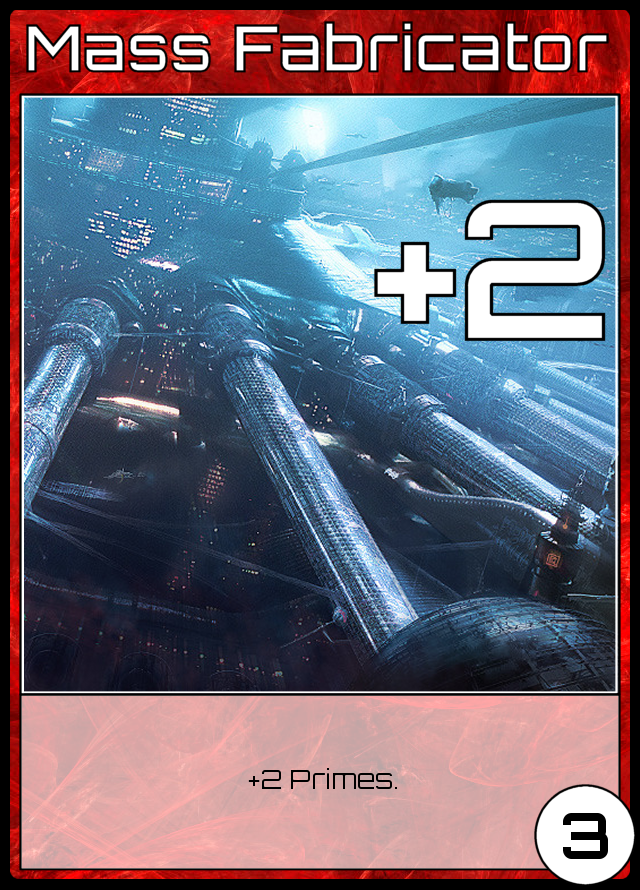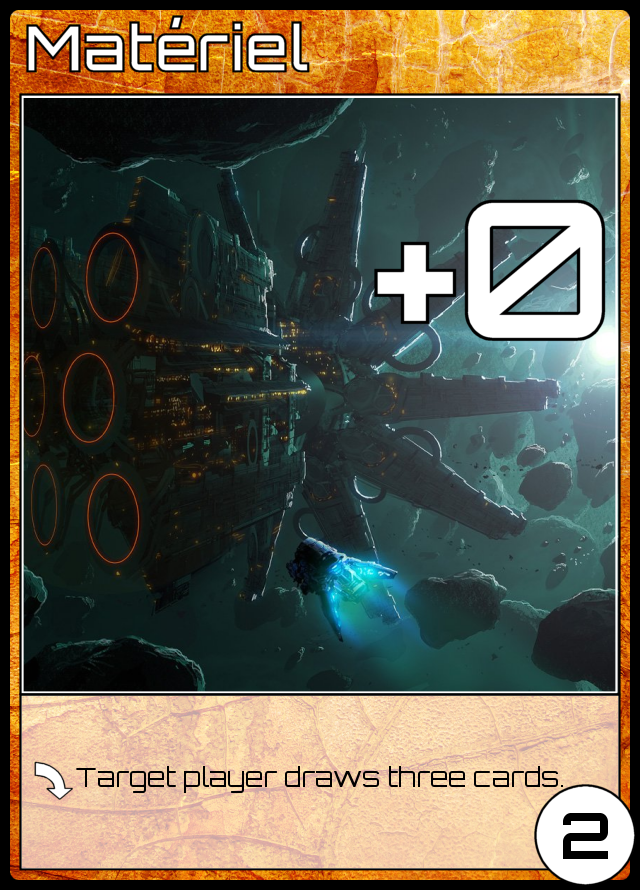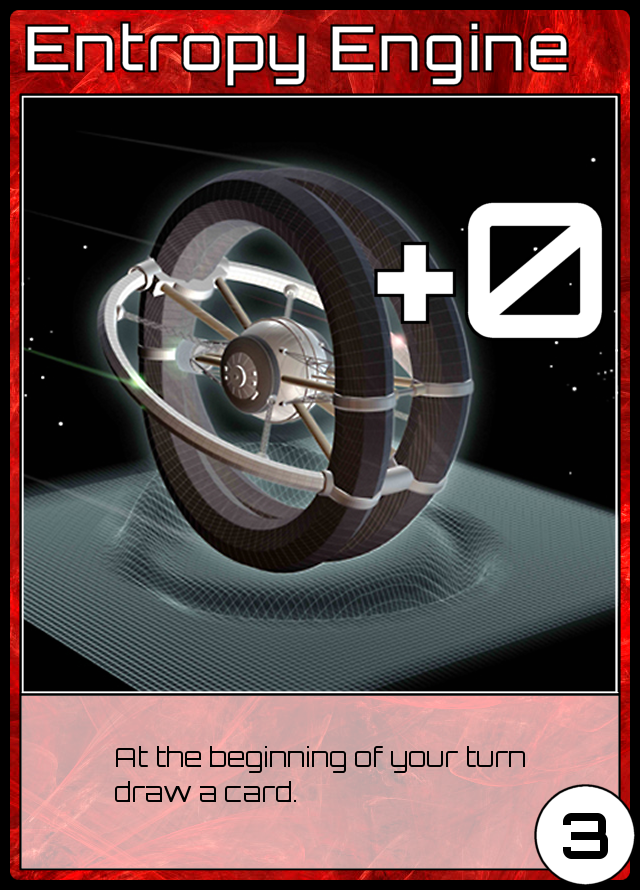When you purge you get to gain cards from the board, trigger any purge effects, then destroy all cards you have in play. Each of these steps can change your tempo, so working out the tempo change for a purge is probably the most convoluted calculation applicable to Progenitor.
First, you add up the tempo you get for any cards you gain, which is the Energy Requirement of each card plus one. Then add any tempo changes from purge effects. Finally, you destroy all cards you have in play, and thus subtract tempo for all the Energy and Primes you lose. It doesn't matter how a card leaves play, be it an opponent destroying them with a card effect or you purging, you still lose the tempo in exactly the same way. This would seem to imply that building up and purging is a massive waste of time, as almost all the tempo you gain with your plays will be lost again as soon as you purge, but the purge is letting you gain cards from the board, and it's this gain of cards which is the overall tempo increase you are scoring.
![Charge 0ER, +1, [starting deck is made of these]](http://www.onelivesleft.com/cardgame/cards/Charge.png) |
 |
- One 1ER card and one 2ER card
- Two 1ER cards
- One card with 3ER or less
- No cards at all (if you wish)
It should also be clear that you should always try to use all of the Energy and Primes at your disposal, as to do less is to lose tempo. If you picked option 2 above then you would be wasting 1 tempo: you may as well have not played the second Charge, and thus been able to purge a turn or two earlier.
 |
 |
When you purge you have a total of 9 Energy and 3 Primes. The three steps of the purge go like this:
- You gain 3 more Mass Fabricators, utilising all your Energy and Primes. Each gain of a Mass Fabricator is worth 4 tempo, so this gives a total of +12 tempo.
- You trigger both your Energy Condensers, drawing a card for each: +2 tempo.
- You destroy everything in play, losing 9 Energy and 2 Primes: -11 tempo.
Of course, we should really extend that window backward to include you getting those cards in hand. If you had to draw them all one at a time with the draw action then it would add 6 turns on to our timeframe, but two of your plays were Energy Condenser (played: draw you a card), so that lowers it to 4 turns. Adding on those 4 turns still gives you a respectable 1.5 tempo per turn. Not bad, but clearly not as good as the 2 tempo/turn above. This should show why having some good card draw like Materiel (2ER, +0, played: target player draws three cards) or Entropy Engine (3ER, +0, At the start of your turn draw a card) is desirable. Entropy Engine would negate all 4 turns of drawing, as well as the two turns to draw and play it, putting you back up to double.
|
|
As to the turnover, well, that's pretty simple: any time you discard a card from your hand it costs you 1 tempo: you lose the draw that gave it to you. Note you lose this point of tempo when you play the card too, but you are counting on the positive tempo the card provides when played to outweigh the loss; when you simply discard a card you don't get this good stuff.
A turnover happens when you have to draw a card and have no cards left in your draw pile; when it happens you must reveal your hand to all players, discard it, then shuffle your discard pile to form your draw pile before finally drawing. Thus, a turnover costs you tempo equal to the number of cards in your hand.
This means that an opponent sitting with a dozen cards in hand, but less than 3 in their draw pile, is ripe for being hit with a Materiel, which will cause a massive tempo swing. If they have literally a dozen cards in hand, you'll hit them for 8, 9 or 10 tempo, depending on how many cards they have in their draw pile. The sweet spot for this is when they have exactly 2 left: Materiel makes them draw three, so they'll draw the two remaining cards, then discard their hand of 14, before shuffling up and drawing the final card of the three, leaving them with only a single card in hand (+3 -14 = -11, but they get +1 for your play).
Art assets on prototype cards are the property of their respective owners, and are used without permission.



No comments:
Post a Comment